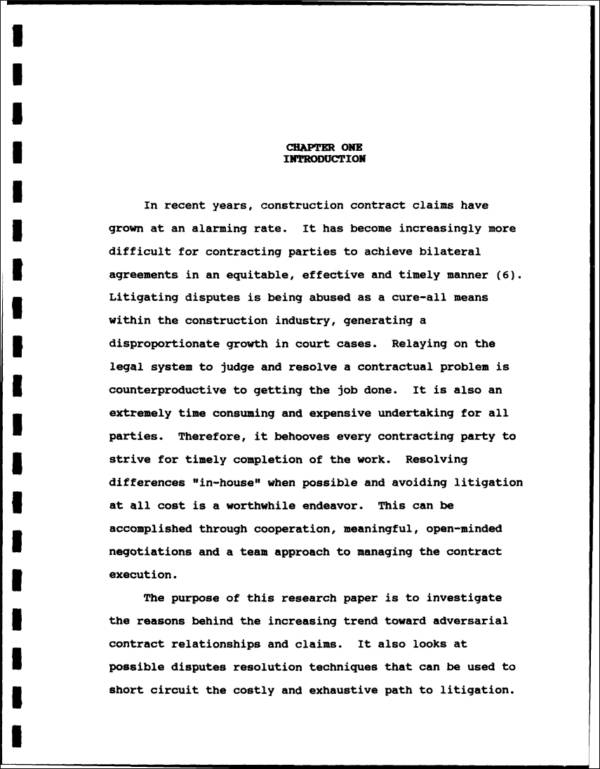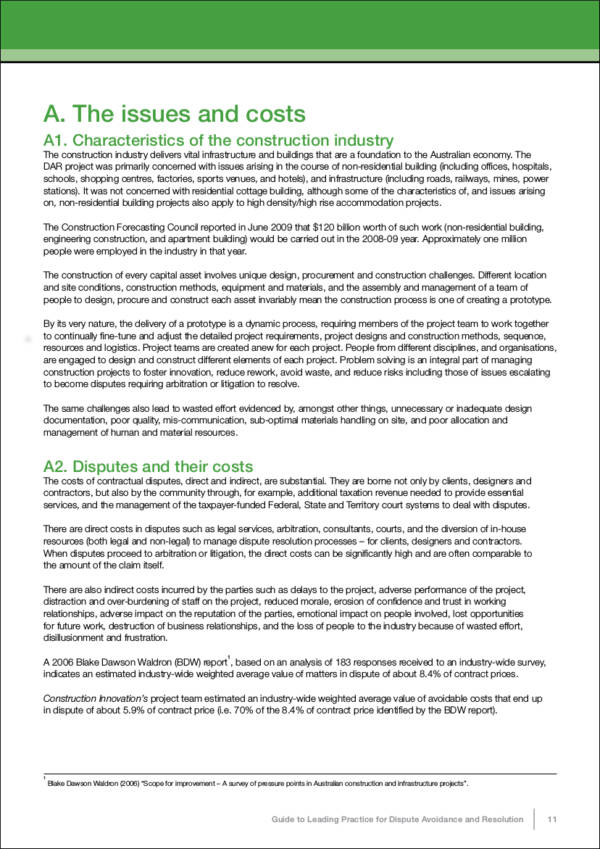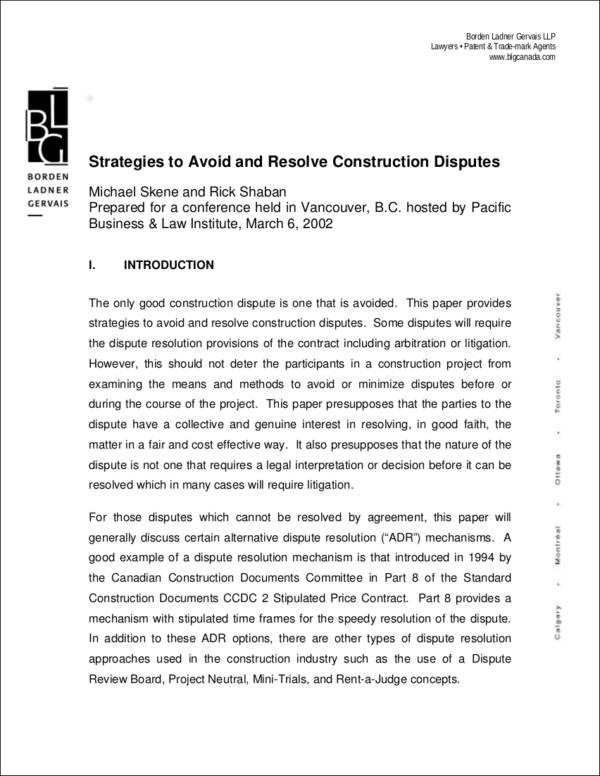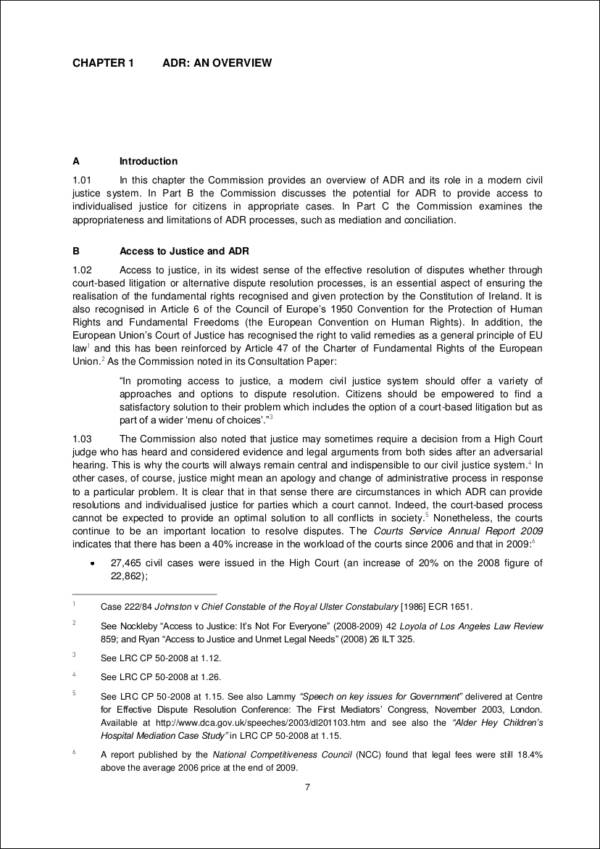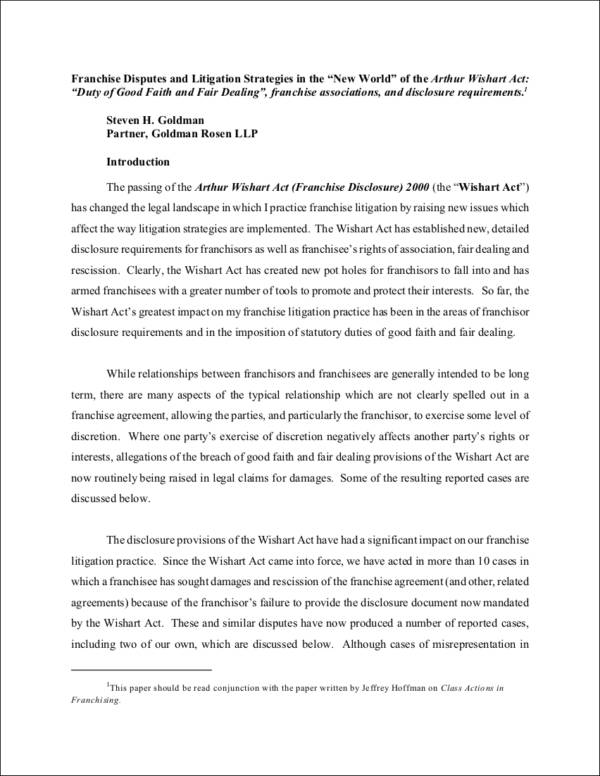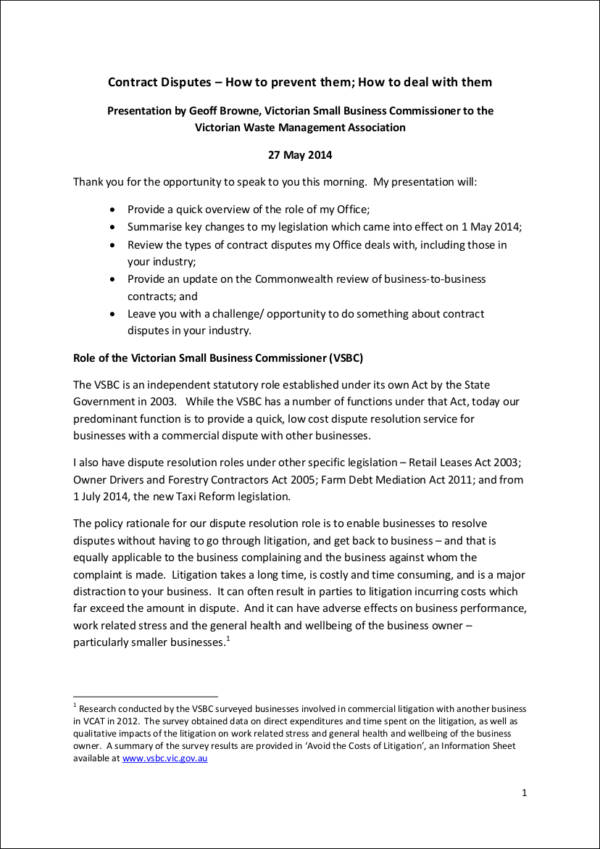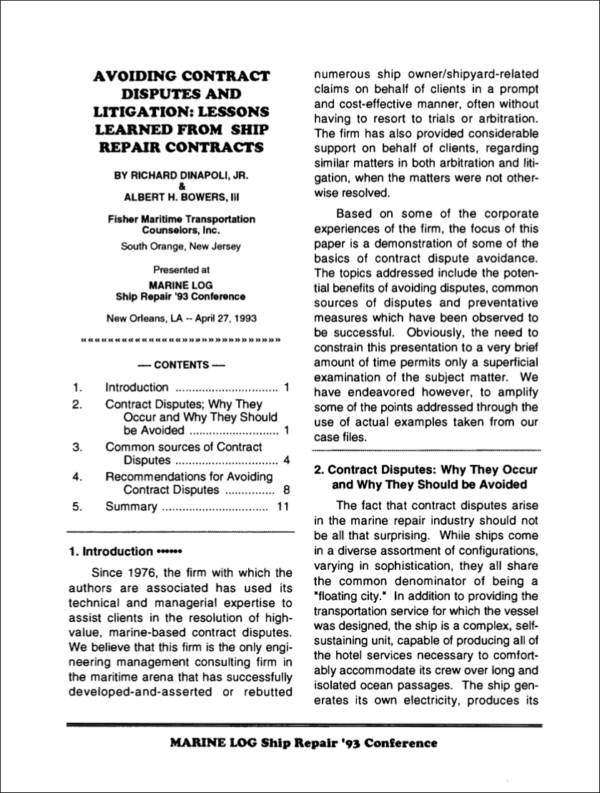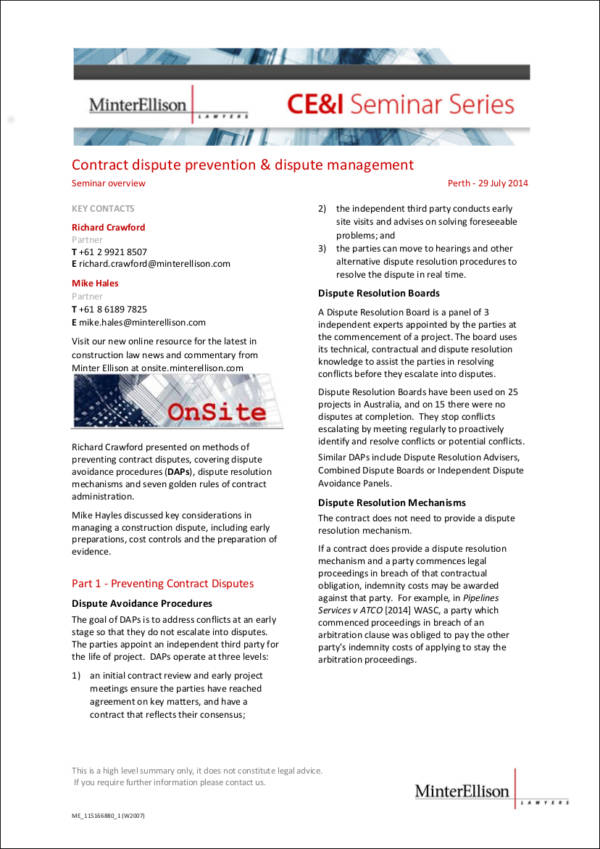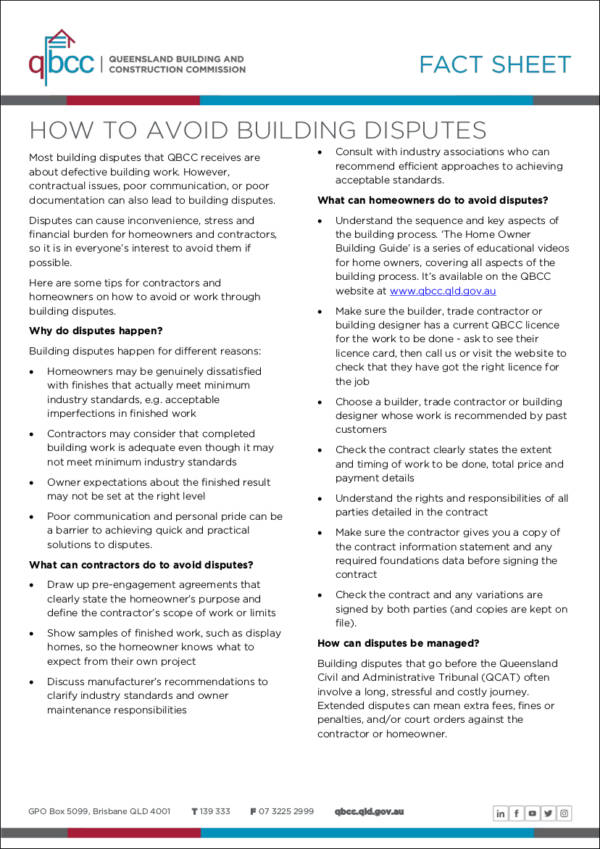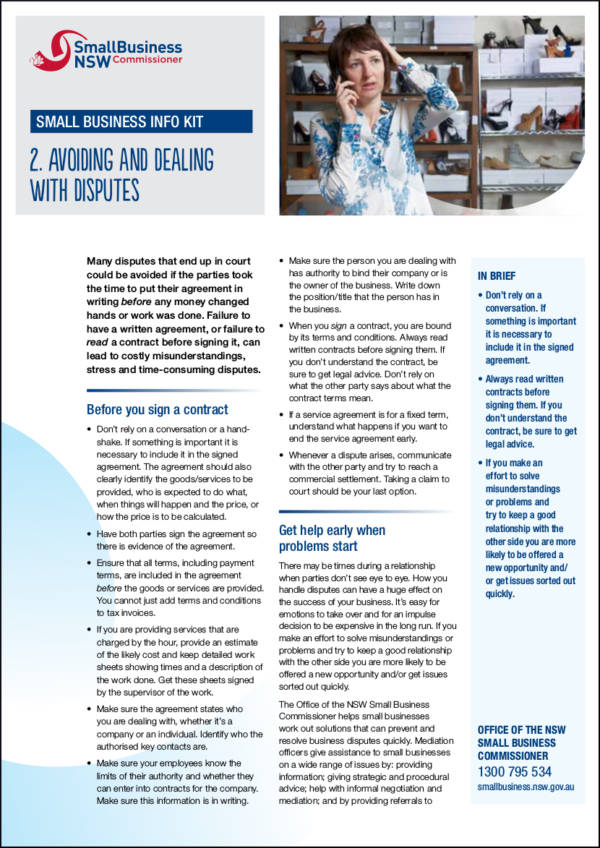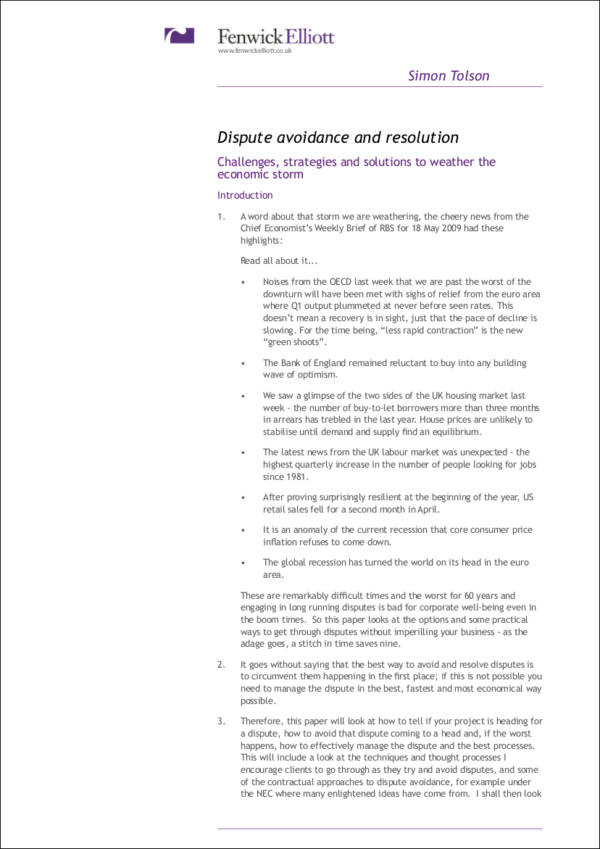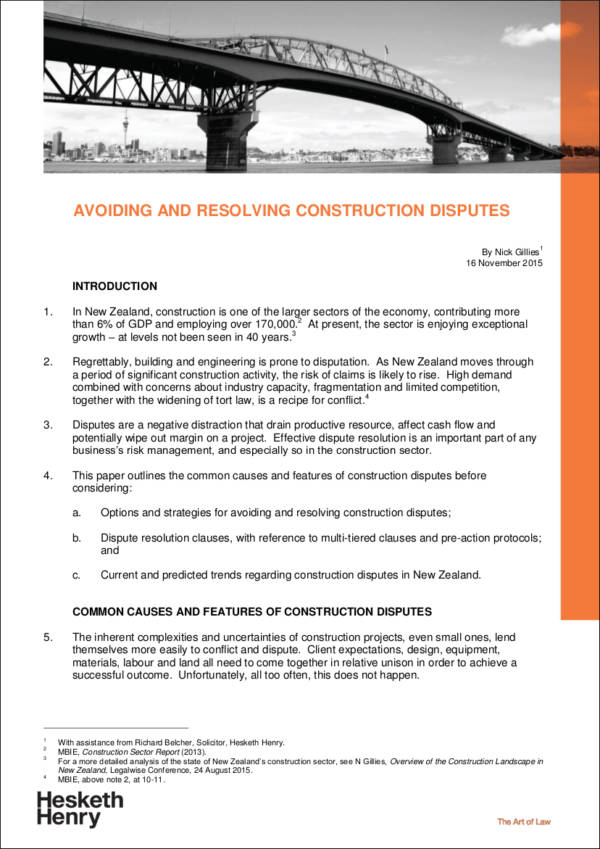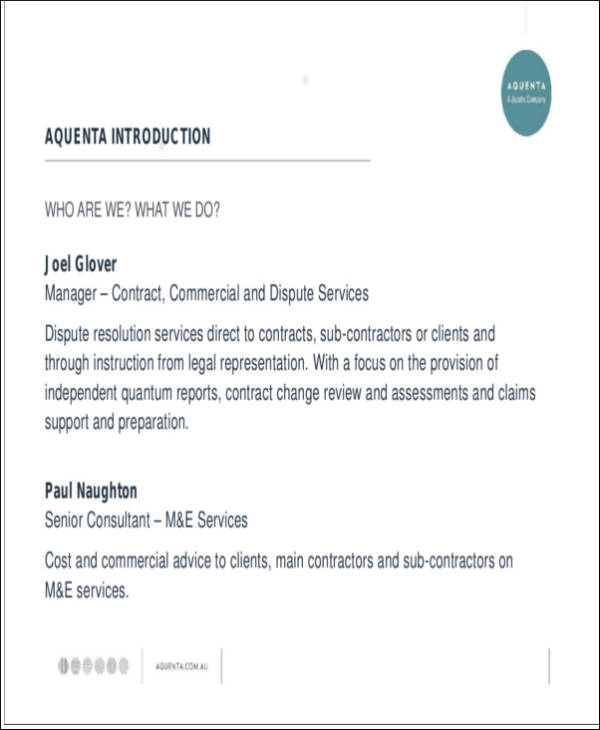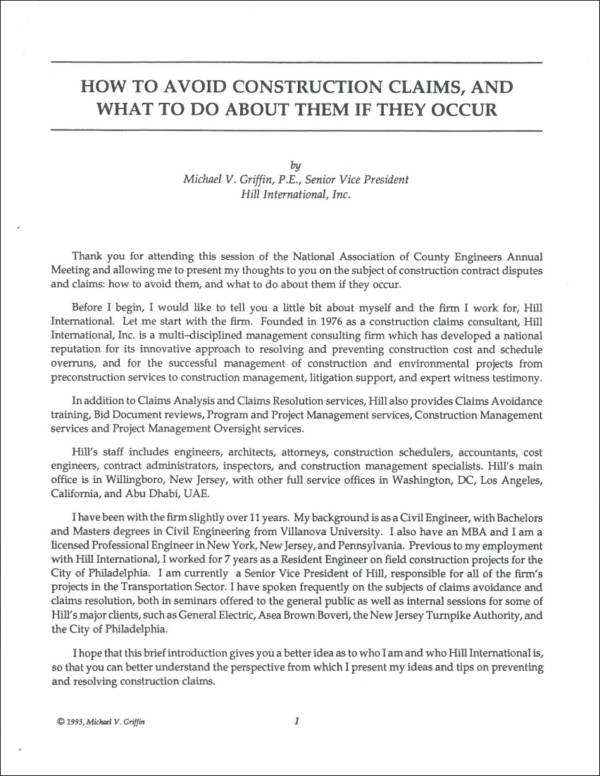Before you signed a contract, you checked it and made sure that everything is okay. You checked all the clauses that are present in the terms and conditions. You even had professional advice before you signed it and you thought that everything was good to go. Then suddenly, something went wrong and the other party is claiming that you did something wrong.
This is a common scenario that occurs when you get involved in contracts. There are just a lot of disputes that sprang from one of the terms and conditions to another. It could really be the other party’s fault or it could be that the other party just wants to get something out of the other party, or it could just be a simple misunderstanding. People who have been working with contracts don’t find these scenarios new. In fact, some of them have mastered the art of avoiding contract disputes.
In this article, our focus would be on the effective strategies that one can use to be able to avoid any contract disputes. We have attached informational strategies in PDF that you can view and download for free online. Since they are in PDF, it will be easier and more convenient for you to download them. Check them out below.
Avoiding Construction Contract Disputes Methods
Contract Dispute Avoidance
Construction Disputes Strategies
Alternative Contract Dispute Resolution
Franchise Disputes Strategies
What Is a Contract?
A contract is an arrangement between two or more parties about a specific subject of interest. A contract may be done verbally or in writing. Whether it be in writing or verbally agreed upon, it is still considered a legal contract. Once a contract is signed by the parties involved they are bound to it and all of the provisions stated in it. They are obligated to follow the terms and conditions, as well as perform their duties according to the contract. If one party violates any of the terms and conditions, they will be subject to agreed upon consequences, like paying for damages or face lawsuits in court.
What Are the Important Elements of a Contract?
A contract would not be effective if it does not include all of its essential elements. The essential elements of a contract are part of the things that you need to check before you sign a contract. These elements are enumerated below.
- Offer and acceptance
- Mutual consent
- Legal obligation
- Meeting of the minds
- Free consent of parties
- Lawful object
- The parties must be competent
- Lawful consideration
- Not void
- Legal formalities
- Performance possibility
Preventing Contract Disputes
Contract Disputes Lessons
Contract Dispute Management
Building Contract Disputes Facts
What Is a Contract Dispute?
Contract disputes happen when a party involved in a contract disagree with the terms and conditions that are included in it. One of the essential elements of a contract is the meeting of the minds, which means that all of the parties involved should agree to all of the terms and conditions in the contract. If any of the parties disagree with any parts of the terms and conditions, then the contract cannot be done.
A contract dispute is also considered as a breach of contract. A breach of contract means that any of the parties involved in the contract violated any of the terms and conditions that are stated in it. These violations may cause harm or damage to the other parties. A breach of contract has two types and they are the material breach and the minor breach.
Avoiding and Dealing with Contract Disputes
Contract Dispute Avoidance and Resolution
Avoiding and Resolving Construction Disputes
Avoiding Contract Disputes
Handling Construction Contract Disputes
How Can You Avoid Contract Disputes?
Life becomes hard when you are faced with a lot of troubles. But it becomes even harder when you are faced with contract disputes. Do you seriously need them in your life? While some contract disputes are unavoidable, there are also some that you can avoid. That is why we have here gathered useful and effective tips on how you can avoid contract disputes.
- Get professional advice. Hire a lawyer to help you with the contract, most especially if you are trying to get into a franchise contract. You may be able to work it out on your own, but it is still best if you get help from professionals. It can lessen the likelihood of you being involved in a contract dispute.
- Be careful with how the contract is written. What is written in a contract can be tricky and there may be hidden meanings behind those useless lines. Make sure that you understand them the same way the other party understands them.
- Ask a lot of questions. If these questions are necessary and if they make sense, go ahead and ask. This will make things clear and prevents unwanted misunderstandings.
- Document every transaction that you have. If you have talked about this and that, make sure that you write it down, and maybe have it signed by the other party. It will serve as proof that the said transaction or conversation occurred.
- You should know what you want and you should also be specific about it. You can’t come up with an agreement or a contract if you don’t know what you really want to happen. Talk this out and make sure that your minds meet about it.
- If you have to deal with new negotiations, make sure that you watch out for any changes that they would want to make in the contract, whether it be about the products or the services.
- Always be clear and concise. Disputes often come from unclear and misrepresented information. Use simple words to be able to avoid misunderstanding. Wrong assumptions can be avoided if you represent the said term or condition correctly.
Related Posts
FREE 14+ Sample Music Concert Proposal Templates in MS Word | Google Docs | Pages | PDF
FREE 10+ Security Guard Contract Samples in PDF | MS Word
FREE 10+ Assurance Agreement Samples In MS Word | Google Docs | Apple Pages | PDF
FREE 10+ Option to Purchase Agreement Samples in MS Word | Apple Pages | PDF
FREE 26+ Curriculum Form Samples in MS Word | PDF
FREE 20+ Cleaning Service Proposal Samples in PDF | MS Word
FREE 29+ Sample Loan Application Form Templates in MS Word | PDF
FREE 10+ Event Venue Contract Samples in PDF | MS Word | Pages | Google Docs
FREE 10+ SBAR Samples in PDF | DOC
FREE 12+ Music Band Contract Templates in PDF | MS Word
FREE 10+ HVAC Maintenance Contract Samples in PDF | MS Word
FREE 10+ Social Media Marketing Contract Samples in MS Word | PDF
FREE 10+ Wholesale Assignment Contract Samples in PDF
FREE 18+ Financial Proposal Samples in PDF | MS Word | Google Docs | Pages
FREE 10+ Feasibility Study Samples in PDF

